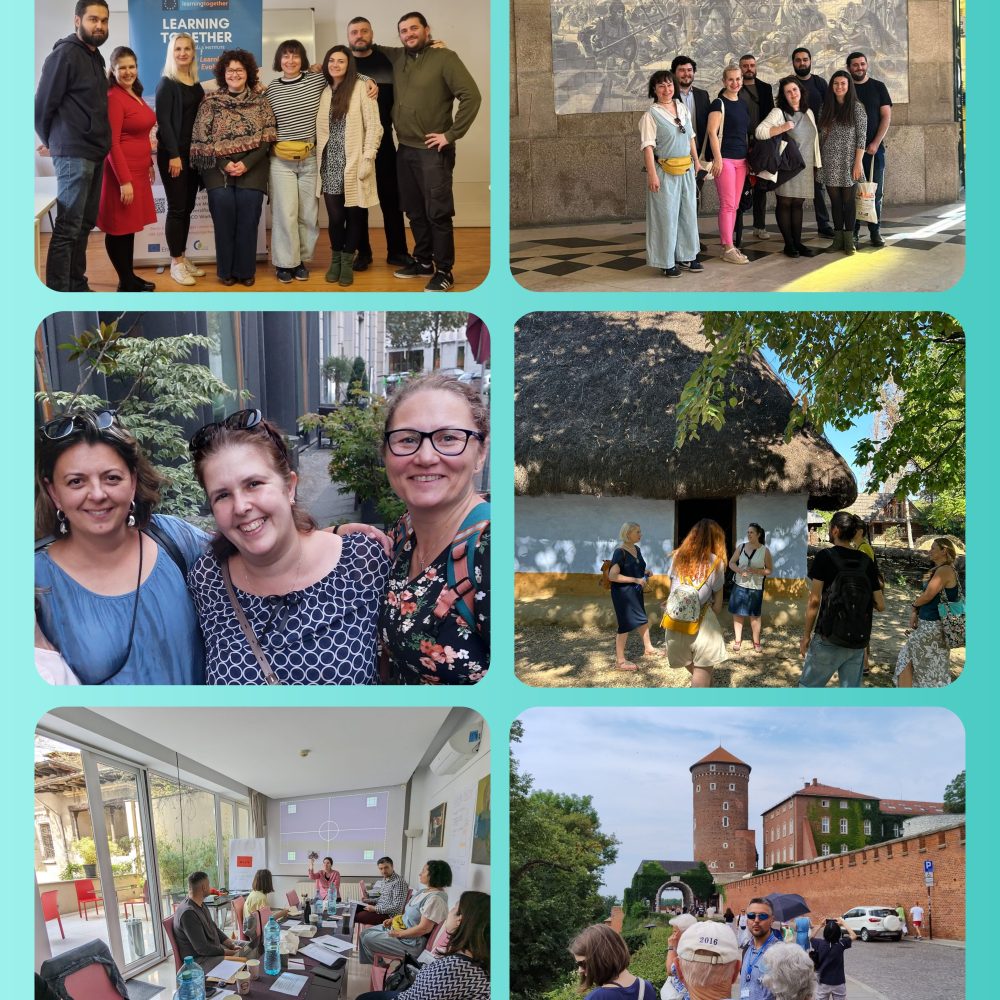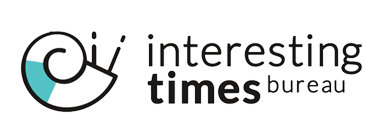Erasmus Journal – First Year of Accreditation 2023-2024

We successfully completed the first year of accreditation in adult education as part of the Erasmus Plus program. It was a year filled with important lessons, where we gained new skills and knowledge, all contributing to enhancing the cultural experiences we organize for adults and developing new ideas that will help us diversify the association’s program and expand our target groups.
We invite you to take a look at how our journey through the Erasmus Plus world went in 2024.
February 2024
Six colleagues from our association participated in a learning mobility in Porto, where they took a 7-day course – Heritage Landscapes, Museums & Portuguese Culture, organized by Learning Together. The course was very well balanced between theoretical and practical activities, featuring two facilitators with extensive experience in cultural tourism. The program covered themes like: the differences between natural heritage and man-made heritage, what UNESCO heritage means, the benefits and challenges of having an UNESCO site status, the role of gastronomy as part of a country’s culture, and its integration into cultural experiences. Participants visited two UNESCO sites (Guimarães and Braga), the National Museum of Art in Porto, and a local market. The knowledge gained covered legislation, different types of heritage, the Portuguese culture, which allowed us to compare cultural projects in Porto with those in Bucharest, as well as develop new skills, necessary for organizing a gastronomic tour in a food market. The course concluded with a joint project created with other participants from Estonia.
April 2024
As part of the project, we had the honor of inviting Mateusz Tomaszczyk, a trainer from the World Federation of Tourist Guides, to Bucharest. He delivered a two-day course on storytelling and heritage. During the two days, seven members of the association learned how to bring cultural objectives to life through stories. The course combined theory with numerous practical exercises, developing essential skills for exploring cultural and heritage objectives through storytelling.
July 2024
Two colleagues participated in a five-day study visit to Krakow Urban Tours in Krakow, Poland, an organization with over 10 years of experience in organizing cultural tours, including culinary and street art tours. The job shadowing activity provided them with the opportunity to observe the way in which a similar association is organized, to interact with the management team and local guides, to participate in the organized tours, and learn about their promotion and communication channels.
August 2024
The last two learning activities took place in August.
The first was led by Ștefania Atanasiu, coordinator of the Semne Cusute group in Luxembourg, as well as the president of the RoKultur Asbl association. The two-day course, held both theoretically and practically at the Village Museum in Bucharest, focused on the symbolism of elements found on traditional blouses (ii), the similarities between these and folk architecture or the neo-Romanian style, as well as organizing cultural events in the diaspora. Ștefania Atanasiu has coordinated several exhibitions of embroidered blouses by the Romanian community in Luxembourg and Belgium, as well as conferences and cultural projects aimed at the Romanian diaspora.
The second activity was a job shadowing experience at Quadriga University in Berlin, where two colleagues interacted with the university’s management and administrative team, toured the campus, and attended classes on sustainability and communication. They also learned about the university’s organizational structure and funding sources.
In addition to learning activities, the project included several dissemination sessions for the association’s team. In the adult community, we organized two dissemination sessions. The first was a food tour in a farmers’ market: “Explore the stories from Old and New Obor,” held in April. The second event was a tour of Jilava Fort 13 that took place in July. The knowledge and skills we gained throughout the project helped us organize these cultural-educational activities for the adults in the community. Additionally, during the Erasmus Days, we will host a cultural-educational event focused on street art, aimed at the adult audience in Bucharest.
The first year of Erasmus Plus accreditation had a total budget of 19,800 euros. Through all these collaborations, with people and institutions from outside the country, we identified potential partners for future cultural-educational projects.


